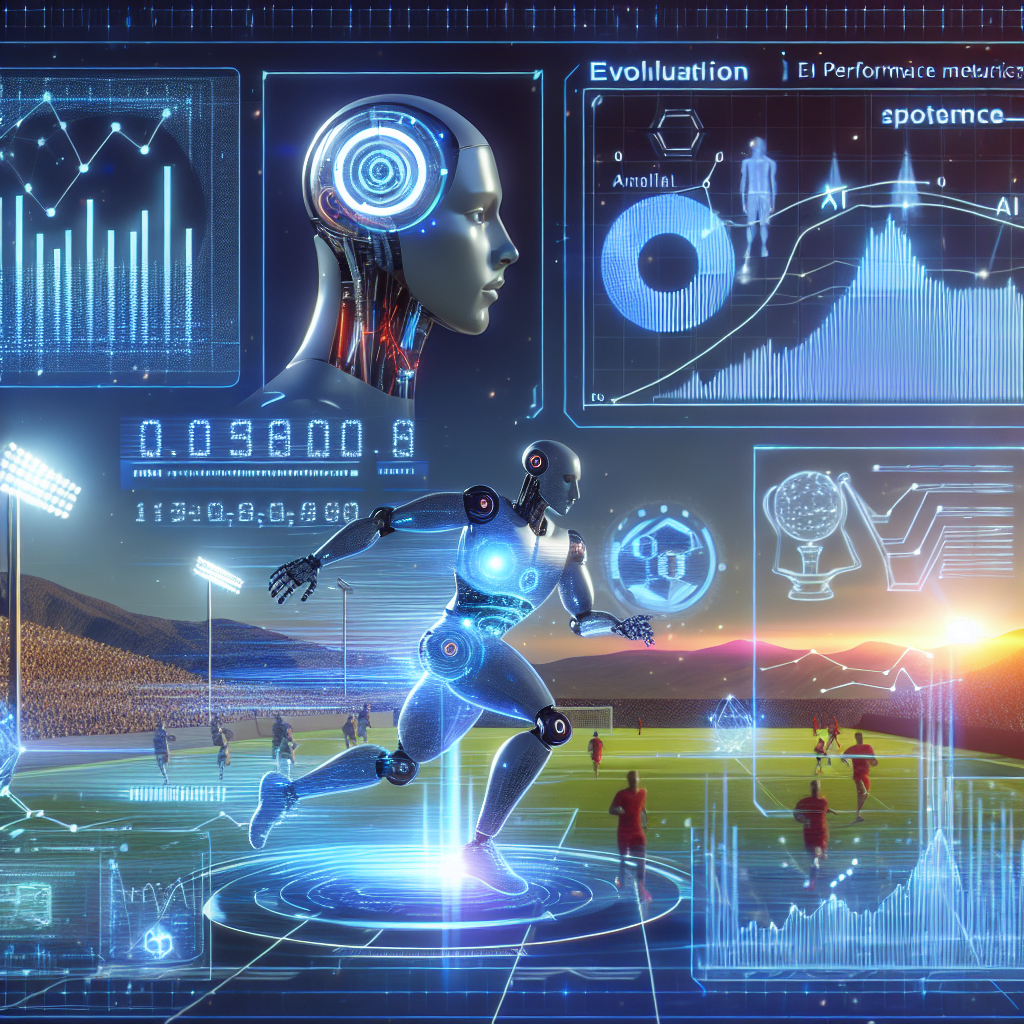In recent years, the use of artificial intelligence (AI) in sports has revolutionized the way athletes train, compete, and improve their performance. AI technology has enabled coaches and athletes to collect and analyze vast amounts of data in real-time, providing valuable insights and feedback that were previously impossible to obtain. This has led to a significant evolution in sports performance metrics, allowing for more precise and personalized training programs, better injury prevention strategies, and improved overall performance on the field.
One of the key areas where AI is making a significant impact in sports is in the collection and analysis of performance data. With the help of wearable sensors and other tracking devices, athletes can now gather data on their movements, heart rate, speed, and other key metrics during training and competition. This data is then fed into AI algorithms that can analyze it in real-time, providing instant feedback on performance and highlighting areas for improvement.
For example, in basketball, AI technology can track a player’s shooting technique and provide feedback on their form, release angle, and shooting percentage. This information can be used to adjust the player’s training program and improve their shooting accuracy over time. Similarly, in soccer, AI can analyze a player’s running speed, distance covered, and sprinting patterns to identify areas where they may be lacking in fitness or efficiency.
In addition to performance data, AI is also being used to analyze video footage of games and practices to provide insights into tactics, strategy, and opponent behavior. By analyzing patterns in player movement, positioning, and decision-making, AI can help coaches develop more effective game plans and strategies to outsmart their opponents.
Furthermore, AI technology is also being used to predict and prevent injuries in athletes. By analyzing biomechanical data, training load, and other factors, AI algorithms can identify patterns that may lead to injury and provide recommendations on how to reduce the risk. This can help athletes stay healthy and perform at their best for longer periods of time.
Overall, the use of AI in sports has led to a more data-driven and scientific approach to training and performance optimization. Coaches and athletes now have access to a wealth of information that can help them make more informed decisions and achieve better results on the field.
FAQs:
1. How does AI technology collect data in sports?
AI technology collects data in sports through the use of wearable sensors, cameras, and other tracking devices. These devices are worn by athletes during training and competition and collect data on their movements, heart rate, speed, and other key metrics. This data is then fed into AI algorithms that analyze it in real-time and provide insights and feedback on performance.
2. How does AI technology analyze video footage in sports?
AI technology analyzes video footage in sports by using computer vision algorithms to track player movement, positioning, and decision-making. By analyzing patterns in the video data, AI can provide insights into tactics, strategy, and opponent behavior, helping coaches develop more effective game plans and strategies.
3. How does AI technology predict and prevent injuries in athletes?
AI technology predicts and prevents injuries in athletes by analyzing biomechanical data, training load, and other factors to identify patterns that may lead to injury. By providing recommendations on how to reduce the risk of injury, AI can help athletes stay healthy and perform at their best for longer periods of time.
4. What are the benefits of using AI in sports performance metrics?
The benefits of using AI in sports performance metrics include more precise and personalized training programs, better injury prevention strategies, and improved overall performance on the field. AI technology enables coaches and athletes to collect and analyze vast amounts of data in real-time, providing valuable insights and feedback that were previously impossible to obtain.
5. How is AI technology shaping the future of sports?
AI technology is shaping the future of sports by providing coaches and athletes with a more data-driven and scientific approach to training and performance optimization. With the help of AI, they can make more informed decisions, develop more effective game plans, and achieve better results on the field.

